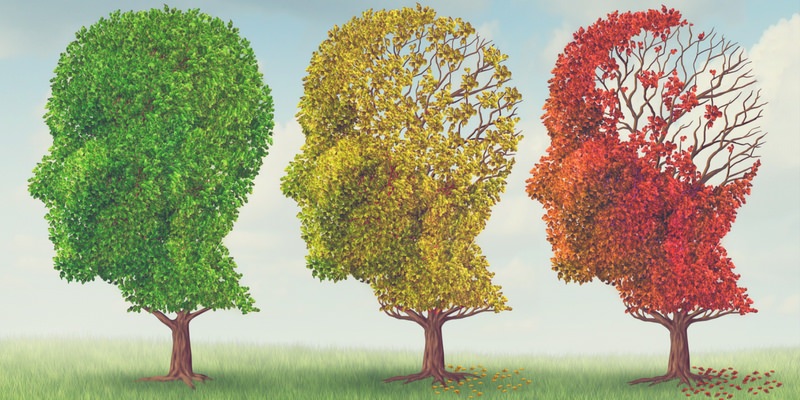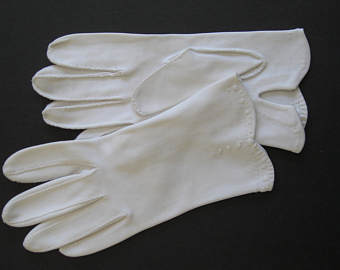107. Mother-Daughter Journey: White Glove Service
Welcome back and thank you for reading. My journey continues.
A couple of days ago my mother had her twelve week retinal check-up and eye injection for macular degeneration. My mother is brought down by her aide in her wheel chair. She is wearing an old black jacket that covers a sparkly gold sweater. She is very particular about her appearance. She has her black slacks on and she wears her sandals-they are the only shoes that can accommodate her distorted feet. The bunions and reconfiguration of those toes are likely caused by the years she wore pointy high heels.
She is wearing an ivory beret; that was mine.
She is wearing an old pair of white felt gloves from the 1950s. One of the fingers has a ripped seam. They make me want to cry.
Once she is in the car and buckled in and off we go, she chatters like a bird in the jungle. The call is the same, I have heard it many times, it is indigenous to her species, the species of old age. It is the call of being a victim, feeling hated. It is the call of anger. It is the call of calls that announces, “I may be old and sometimes confused but I am still here,” it says “I need to talk nonstop because I am anxious.”
The tunes are repeated over and over until I intervene. “Let’s talk about something else,” I say. But the calls are programmed and set to play on a loop. They reflect the mind that controls them, that is also stuck in a knot of tangled feelings, of upcoming fears of tragedy and past tragedies, causing confusion and temporal hiccups and thoughts like hair that hasn’t been combed in ages. But not like my mother’s hair: she has it done weekly at the downstairs beauty parlor. I keep telling her that her dark-brown-dyed hair should be more like her natural blonde. I guess that is too close to gray and she doesn’t pay me heed. You can’t tell a ninety-nine year old what to do.
Once at the retinal place we check in and the wait begins for the process. She is interviewed: she tells the technician that she had a fall and that she injured her right side and although she didn’t fall on her eye, “the vision is not the same.” She can’t read the eye chart but if the technician stands in front of her she can see if she is holding up one or two fingers. My gut twists.My mother always had the most beautiful eyes and now they are tormented by an inoperable cataract and degeneration.
Her eyes are dilated.
She asks about her artificial tears eye drops. She asks everyone there about eye drops. “Which brand is better?” Her repertory of questions which are repeated at every visit help her establish herself as a thinking and functioning almost-centenarian.
Back to the waiting area for photos. She is called. We wheel her to the photo-guy who picks her up like a doll and puts her in the chair, directs her chin to the holder and he tells her not to move. He snaps and snaps images of her retina.
Back to the waiting room, a smaller one closer to her doctor. This is an office with many doctors and many patients. Every patient comes with one or two other people. Daughters and sons my age. We all feel old and tired from this job. This chauffeuring and watching over our parent-children. It is contagious when you care for the elderly. This job exposes you to what is coming. You can see down the tunnel to the end when your elderly parent is gone and you take her place.
Mother is called to the doctor’s room. A tech takes info, I sign for her. From where my mother is sitting, in the big chair with the metal foot rest, she looks even smaller than her four-foot eight-ish frame. She sees my signature on the computer screen and she can’t read it. Then the recent photos appear on the screen and she is still looking for my signature. I wonder how she can make sense of the programs on television; she watches them from a much closer vantage point.
It’s the same routine. The doctor enters and greets us, my mother asks the same questions again and again and gets the same answers. My mother’s right eye still has internal leakage, hence an injection to stave the inner bleeding. And no, there was no trauma from “the fall,” last month. She has “dry eye” externally and the drops will help, use whatever feels best. The outer eye is dry, the inner eye is “wet,” and despite all the shots, she feels worse. The doctor tells me that her retina is aging. My mother doesn’t understand, doesn’t remember that she has macular degeneration and I bet she forgot that she is close to a century old–for that minute, anyway. She can’t read. Her once perfect signature is scattered like bird-claw prints. Her love of doing crossword puzzles is marred by her eyes playing tricks on her, taking the letters away and hiding them. She complains that the books are too small. I buy large print books with puzzles. They are too big for her to “research” the answers on another page. I bring over the Dell Very Easy puzzles again. The books are too small, The print, microscopic to her.
I am Goldilocks: Nothing I do finds a solution, I can’t find “just right.” I am used to this, trying and failing. The meatballs were too hard, the potato knishes had too much pepper. This has been both of our lives even before her vision failure and our parallel aging. She wants. I try. Sometimes I win, I usually fail. We were never the mother-daughter team that went for lunch and laughed together in a restaurant. We were never pals. Our power balance was distorted, our roles were shifted by years and loss of abilities. We got tangled in some kind of knot of perceptions and mis-perceptions and guilt and filial duty.
Today, I was thinking of my mother at about 12:50 PM. The phone rang. Caller ID told me it was my mother. This never fails, this connection. Her lunch which usually arrives at 11:30 AM hadn’t arrived. She was miffed. THIS is the issue, always with the dining room. She sent the aide down who stood there for half hour and came up empty handed. My mother insisted that SHE is the “victim of a hate crime.” She cursed out the dining room guy.
I calmed her down. Again. I insisted she is not the object of hate. I insisted she was not being singled out. I assumed they were short-staffed in the dining room. I promised I would make a few calls. I called dining room guy.
I got a call back and we had a lovely conversation. It was the first time he was short of help to this degree. I get it, but an elderly mind begins to think the worst, takes on the typical old, grouchy, paranoid persona because, well, death is on the way. I suggested to dining room guy (who was grateful) that when something like this happens, to appease the elderly with a note tucked onto the food tray: We sincerely apologize for the lateness of your meal delivery. We are very short-staffed today. Please enjoy your meal.
He thought is was a great idea. We’ll see if he picks it up.
So here I am, on duty again, diffusing another bomb. Another day’s work. And there is a pile of paper work for her that has to be done. I can’t look at it.
I still can’t stop thinking about my mother’s gloves. And I still want to cry at the thought.
This series starts here:
Part 1: And The Band Played On … a mother’s life, a daughter’s journey
The previous post is here
The next post is here




I love your writing Sue, it’s the subject I hate!
I can’t stand hearing how you, and your mom, are being tormented. Your mom because she’s confused and afraid, and you, because you’re overwhelmed. Just seems very unfair.
How I wish there was something I could do to ease this heavy responsibility.
Keep fighting the good fight. There’ll be a place for you in heaven.
yes,you are a great writer.I enjoy so very much reading about your Mother.I Like how she likes to keep herself up.I just love your way of putting it all in writing….love to you both.
Spectacular writing and huge empathy. You’re unique
I can still see the photos of your mom in Stuyvesant Town dressed to the nines.
Hugs to you…
245
You are a great writer. I’m sorry for all the bombs.
You are in my thoughts!!


